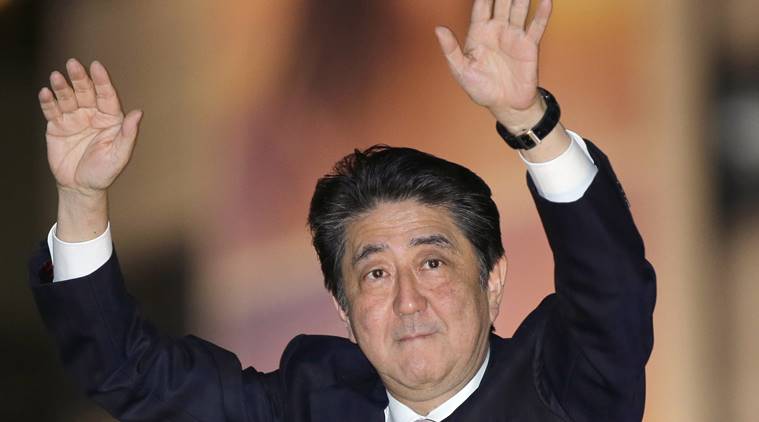DYLAN RAMOS WRITES — Despite Typhoon Lan hitting parts of the country, Japanese voters took to the polls October 22, largely in support of Prime Minister Shinzō Abe’s Liberal Democratic Party, which has governed Japan for the past 58 years.=
Abe officially secured his third term as Prime Minister November 1, following proceedings in the House of Representatives. The LDP and its junior coalition partner, Komeito, have secured 313 of 465 seats, giving them a parliamentary supermajority.
Tokyo Governor Yuriko Koike’s new Kibō no To—the Party of Hope—and former Chief Cabinet Secretary Yukio Edano’s, even newer Constitutional Democratic Party, secured 50 and 55 seats, respectively. Both new parties enjoyed growth and attention when they initially launched, but faded in the weeks preceding the election.
In calling for a snap vote, Abe brought forward the 48th General Election by over a year. The Prime Minister called the election seeking a popular mandate for his administration. Abe’s recent moves amidst growing tensions with North Korea have aided his approval ratings (rocked twice this year by accusations of political cronyism).
While the LDP-led coalition has retained its parliamentary majority, it already appears that achieving a popular mandate for Abe’s full agenda will not be as smooth a ride as he may have hoped. Some have grown disenchanted with the Prime Minister’s second term performance and his so-called ‘Abenomics’ program. The media has also pointed out public opposition to Abe’s hope for a remilitarized Japan, which would require a constitutional revision.
However, recent polls show that the Japanese public are still strongly against constitutional revision of Article 9, which relinquished the nation’s right to declare war or maintain a standing army. Former Prime Minister Yoshida Shigeru rejected such an idea in the past, when American fears of a Communist ‘domino effect’ led to a rearmament proposal by General Douglas McArthur.
Shigeru called remilitarization unconstitutional under Article 9, but compromised to form the Self-Defense Forces. This balance wouldn’t change until 2015, when Abe’s government allowed for collective self-defense alliances with other nations, an act heavily protested by the public.
To those who even noticed it in the US, Abe’s re-election may seem inconsequential, but Japanese and international observers alike should keep their eyes on the Prime Minister.
In 2014, he signed a State Secrecy law that outlined strict punishment–up to 60 years in prison–for both whistleblowers and the journalists who attempt to speak with them. Critics have tied this to the administration’s efforts to contain news surrounding the Fukushima nuclear disaster of 2011.
Today, it is said that Prime Minister Abe is the most active among Asian leaders in keeping an open dialogue with President Trump. Abe is also said to hold particular influence over younger voters. As of now, it looks as if Abe has secured his term.

